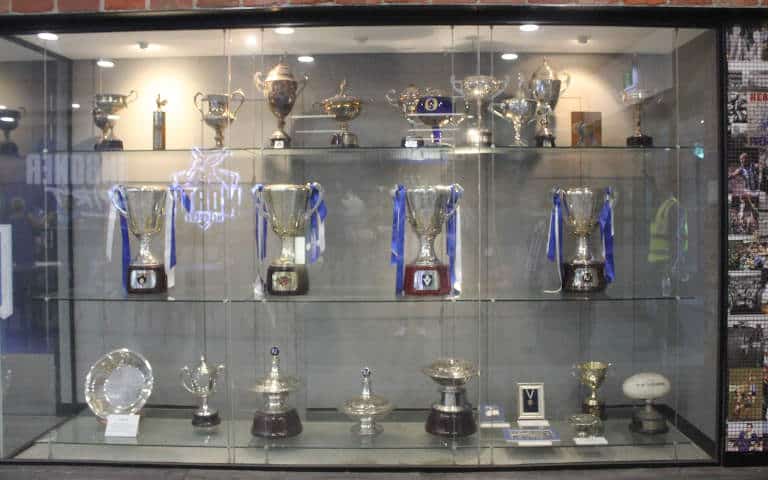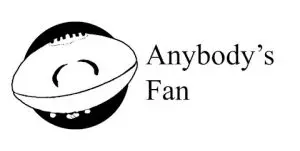After a recent discussion between myself and a few fellow fans on the various AFL medals and awards, I became curious about how AFL medals are determined, and who the experts are that judge these awards.
In summary, each AFL medal is awarded for the following:
| Brownlow | Best and fairest of the season |
| Norm Smith | Best on the ground in the Grand Final |
| Coleman | Most goals kicked in the home-and-away season |
| Jock Mchale | Being the premiership coach |
| Morrish | Best player in the Victorian Under 18’s |
The people responsible for judging each award are:
- Brownlow medal: Field umpires at the end of each game;
- Norm Smith medal: Judging panel consisting of former coaches and players, and media representatives;
- Coleman medal: A count of the number of goals in a season;
- Jock Mchale medal: Coach the winning team;
- Morrish medal: Field umpires at the end of each game.
I’ve included step-by-step details below on how to win these awards, and how these medals got their names.

As I’m only a fan who has never won an AFL medal, I had to do a bit of research to make sure all the details in this article are correct. If you’re interested in the references I used, I’ve included these at the bottom of this guide.
Brownlow Medal
The Brownlow Medal is awarded to the fairest and best AFL player based on their performance throughout the home-and-away season. The award is determined by a count of votes collected from the field umpires at the end of each game.
How to win
To win the Brownlow Medal:
- Step 1: Win best on field votes from the field umpires after each match. The field umpires get together at the end of each home-and-away match and award 3 votes to the best player; 2 votes to the second-best; and 1 vote to the third-best.
- Step 2: Don’t be ineligible. A player becomes ineligible for the Brownlow Medal if they are suspended by the league or their club, or are found guilty of a league offence which attracts a financial penalty.
- Step 3: Have the highest number of votes at the end of the home-and-away season; the player with most votes wins.
The vote in Step 1 fulfills the best component of “fairest and best”. Field umpires award their votes based on their identification of the best players.
The eligibility criteria in Step 2 fulfills the fairest component of “fairest and best”. As long as no suspensions or financial penalties are received, a player is determined “fair” to win the medal.
Votes are typically counted on award night which I find adds to the excitement of the reveal of the Brownlow medal winner.
How it is named
The Brownlow Medal is named after Charles Brownlow.
Charles Brownlow was a player and secretary for the Geelong Football Club. Shortly after the formation of the Victorian Football League, Brownlow was the administrator on the board serving as Geelong’s delegate.
How it is made
The Brownlow Medal is made from 18 carat gold which is 2.5mm thick. The gold is softened and rolled, then cast in the Brownlow die to make the medal’s shape. The medal is then hand struck and hand enamelled with glass crystals used in the areas where the medal is blue. Finally, the medal is fired with a torch.
The medal is made in Frankston by Cash’s Awards and Promotion Solutions.
Norm Smith Medal
The Norm Smith Medal is awarded to the player judged best on ground in the AFL grand final. The panel of five judges consists of former coaches, decorated players, and media representatives.
How to win
The criteria to win the Norm Smith Medal are:
- Be in the AFL Grand Final
- Receive the most votes from the panel of judges
Votes are awarded independently by each judge on the panel. Three votes are awarded to who the judge identifies as the best player; two votes to the second-best; and one vote to the third-best.
In case of a tie, the player with the most “three votes” wins.
How it got its name
The medal is named after Norm Smith. Norm Smith was a VFL player and coach who coached various Victorian teams throughout his career and is credited with doing much to professionalise the sport.
Coleman Medal
The Coleman Medal is awarded to the player who kicks the most goals in the home-and-away matches of the season.
How to win: To win the Coleman Medal, be the AFL player at the end of the season who has scored the most goals.
How it got its name: The medal is named after John Coleman. John Coleman was a notable player for the Essendon Football Club, being currently the only VFL player to have kicked more than 100 goals in his first season.
Jock McHale Medal
The Jock McHale medal is awarded to the coach of the team that won the grand final.
How to win: To win the Jock McHale medal, be the coach whose team wins the AFL premiership. There are no other requirements or voting process for this medal.
How did it get its name: The medal is named after James ‘Jock’ McHale. McHale coached Collingwood to win 8 premierships, four of which were in consecutive years. Upon Mchale’s retirement, the medal was named in his honour.
Prior to Jock, it was named the Premiership coach’s medal.
Morrish Medal
The Morrish Medal is awarded to the best player in the Victorian Statewide Under 18 competition.
How to win
To win the Morrish Medal, accumulate the most votes that field umpires award after each home-and-away match. This is the same voting process that awards the Brownlow medal.
- Step 1: Win votes from the field umpires as best on field. The field umpires get together at the end of each home-and-away match and award 3 votes to the best player in the match; 2 votes to the second-best; and 1 vote to the third-best.
- Step 2: Don’t be ineligible. A player becomes ineligible for the Morrish Medal if they are suspended by the competition or by their club, or are found guilty of a competition offence which attracts a financial penalty.
- Step 3: Votes are tallied at the end of the home-and-away season and the player with the most votes wins.
How did it get its name
The Morrish Medal is named after Tom Morrish who was a treasurer and Umpire Appointment Board member predominantly in the 1960’s.
Other Awards
I also took a look at some of the other awards the AFL celebrates each year:
Rising Star
The Rising Star award recognises the best young player of the season. I wrote a complete guide on how to win the Rising Star award, if you think you’re in with a shot (or just curious), check out my guide here.
Mark of the Year
The Mark of the Year award is given to the player who performed the best mark of the season as determined by a selection committee comprised of AFL executives, and former coaches and players.
Three marks are nominated every week by a panel of football experts and the selection committee chooses its best from these nominations at the end of the season.
The general public can also vote on the best marks for a chance to win a prize; general public voting does not influence the award of the Mark of the Year.
Bottom Line
It seems AFL medals are awarded by experts who have the history and experience required to judge which player/coach best fulfills the concept of that award.
I feel the Brownlow is the most prestigious of all the AFL awards; it makes sense that this award has such a significant ceremony on the season’s calendar. It certainly seems though that all the awards require the
References
Having never won a medal myself (I’m only a fan, not a player), I had to look up some of the details I’ve included in this guide. To find out more about where I got my information, check out the links below:
- AFL official site for the Brownlow medal
- News article where they spoke to the company that makes the Brownlow medal in Frankston
- AFL official site for the Norm Smith medal
- News article on how the Norm Smith is awarded
- Biographical record on Norman Smith
- AFL official site for the Coleman medal
- Biographical record on John Coleman
- AFL official site for the Jock Mchale medal
- AFL official site for the Morrish medal
- The Oxford Companion to Australian Sport
- Mark of the year public terms
Chris grew up watching these award winners on TV every year. He’s never been close to winning one for himself though.
